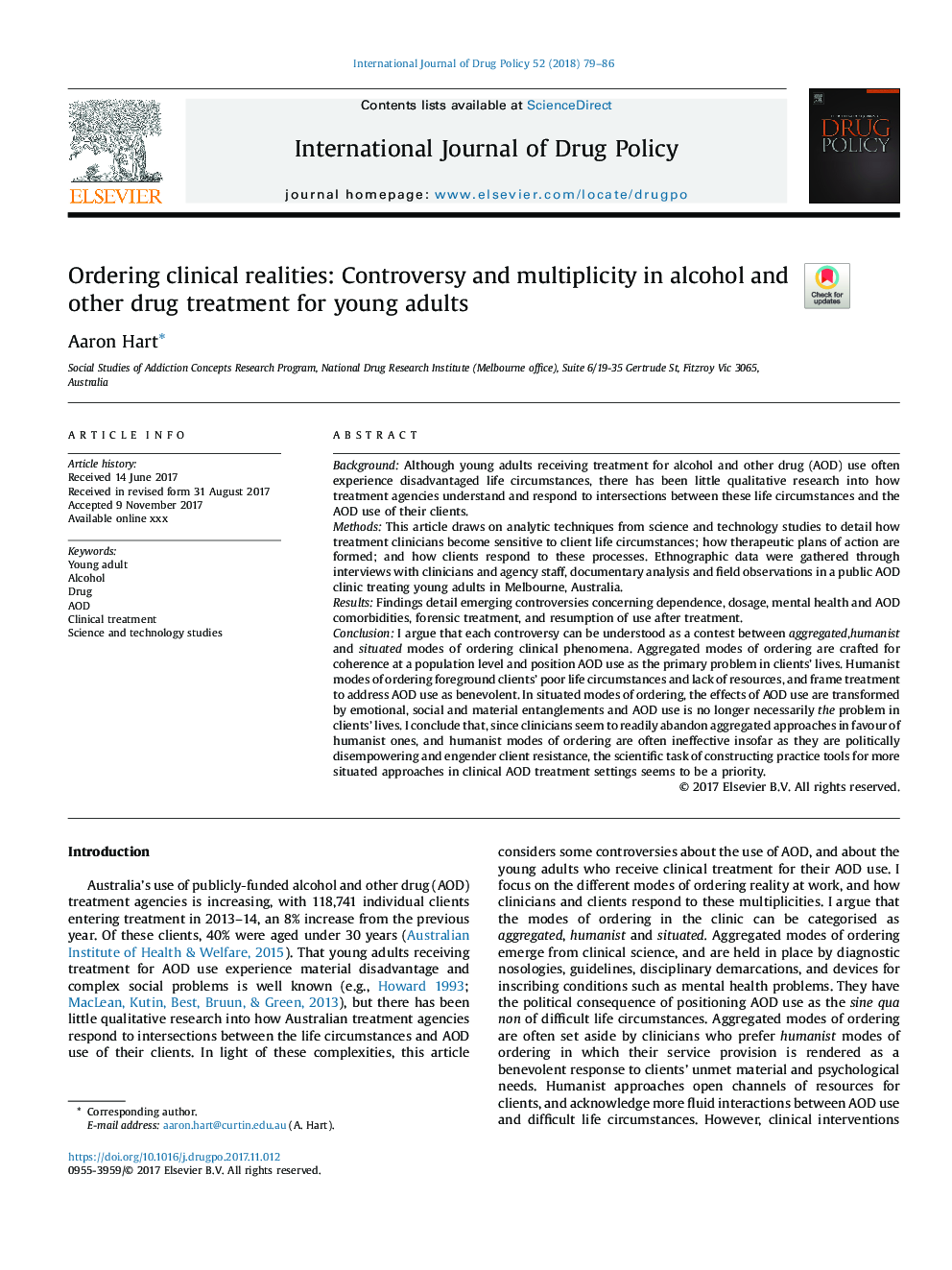| Article ID | Journal | Published Year | Pages | File Type |
|---|---|---|---|---|
| 7512281 | International Journal of Drug Policy | 2018 | 8 Pages |
Abstract
I argue that each controversy can be understood as a contest between aggregated, humanist and situated modes of ordering clinical phenomena. Aggregated modes of ordering are crafted for coherence at a population level and position AOD use as the primary problem in clients' lives. Humanist modes of ordering foreground clients' poor life circumstances and lack of resources, and frame treatment to address AOD use as benevolent. In situated modes of ordering, the effects of AOD use are transformed by emotional, social and material entanglements and AOD use is no longer necessarily the problem in clients' lives. I conclude that, since clinicians seem to readily abandon aggregated approaches in favour of humanist ones, and humanist modes of ordering are often ineffective insofar as they are politically disempowering and engender client resistance, the scientific task of constructing practice tools for more situated approaches in clinical AOD treatment settings seems to be a priority.
Related Topics
Health Sciences
Medicine and Dentistry
Psychiatry and Mental Health
Authors
Aaron Hart,
